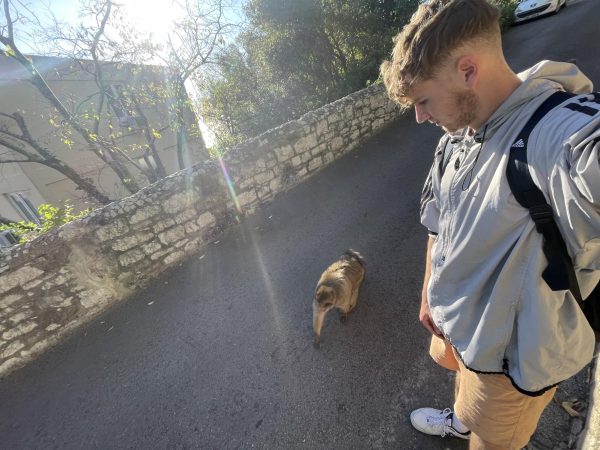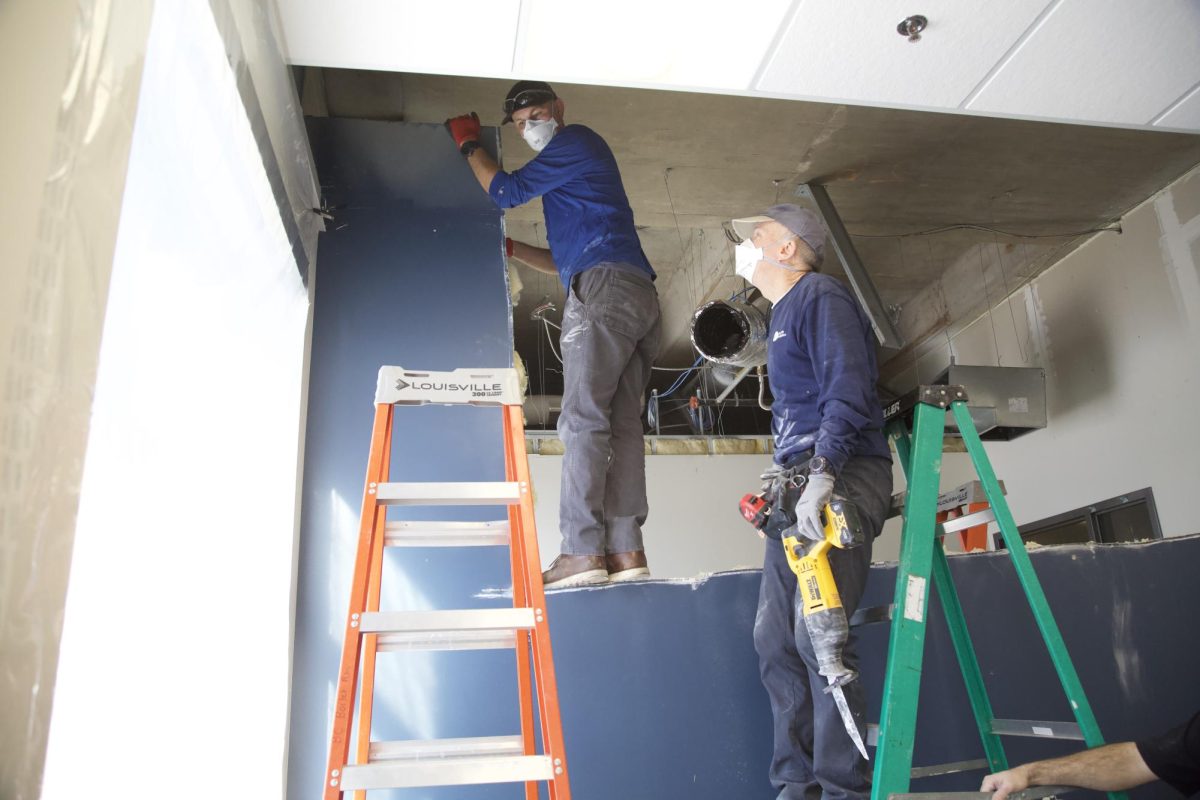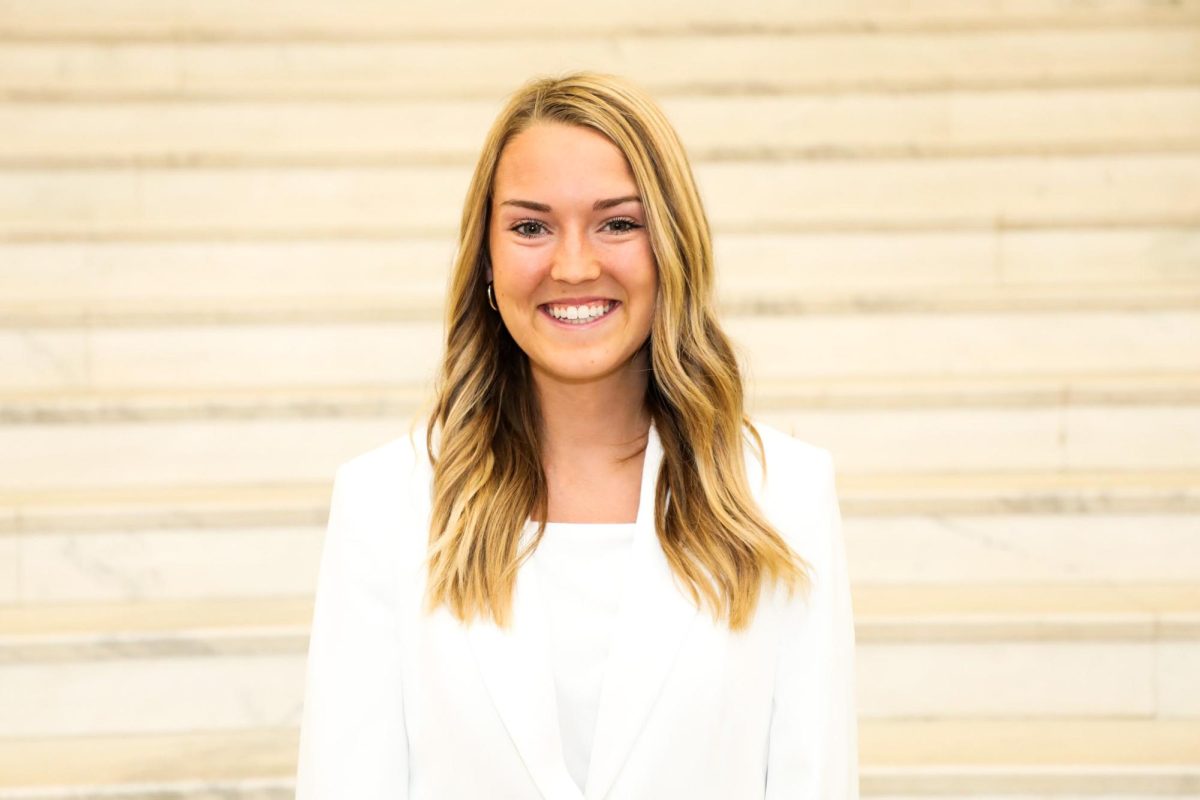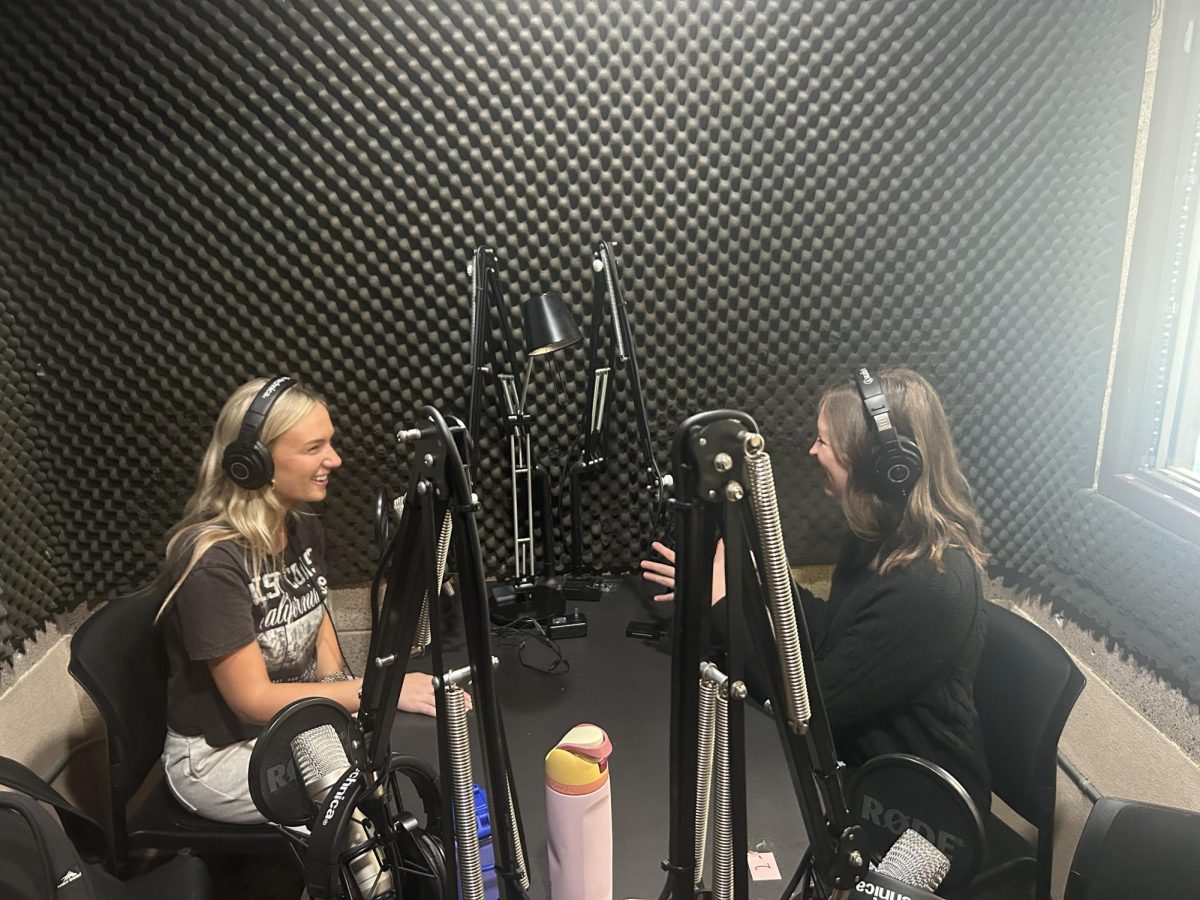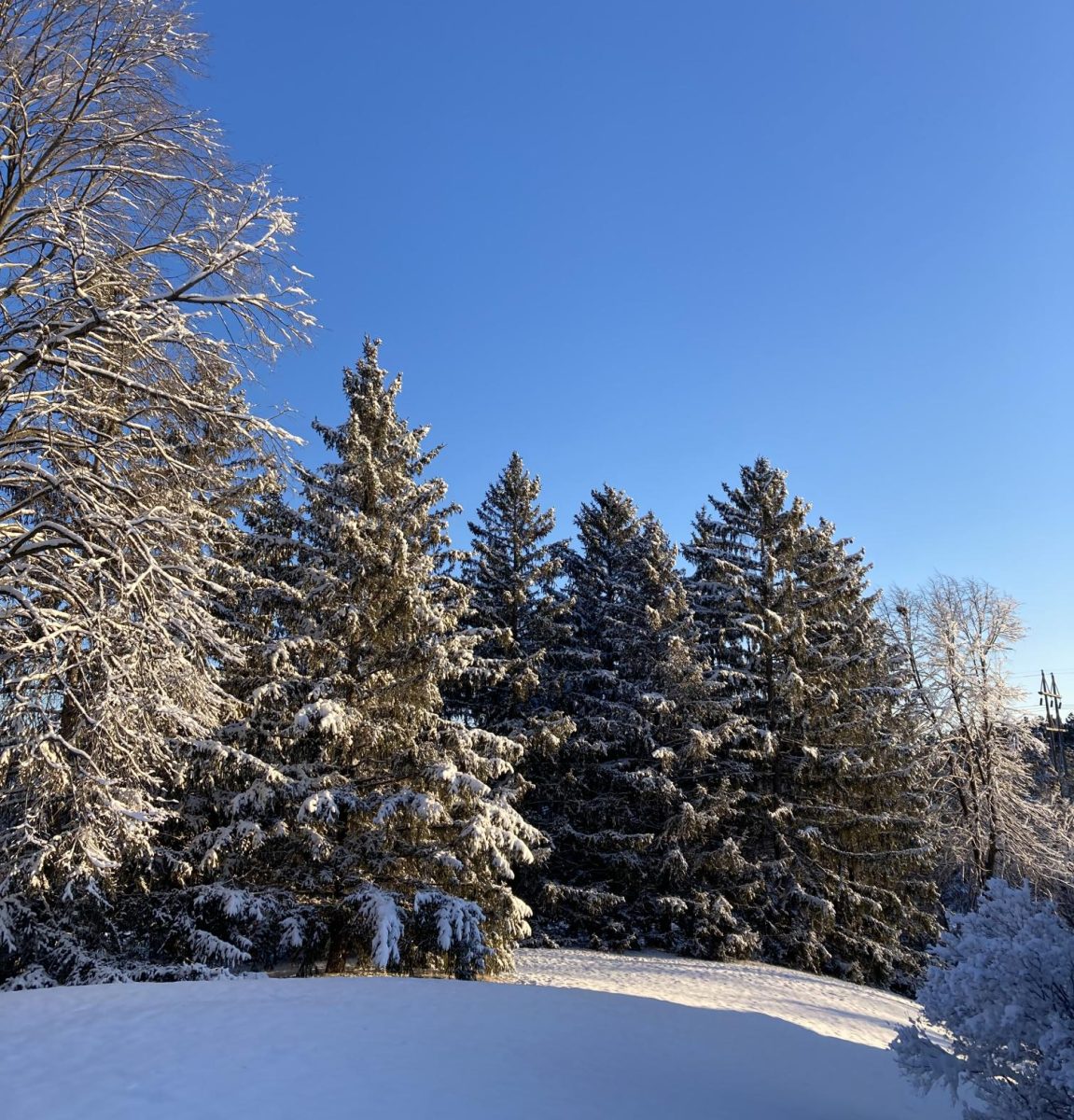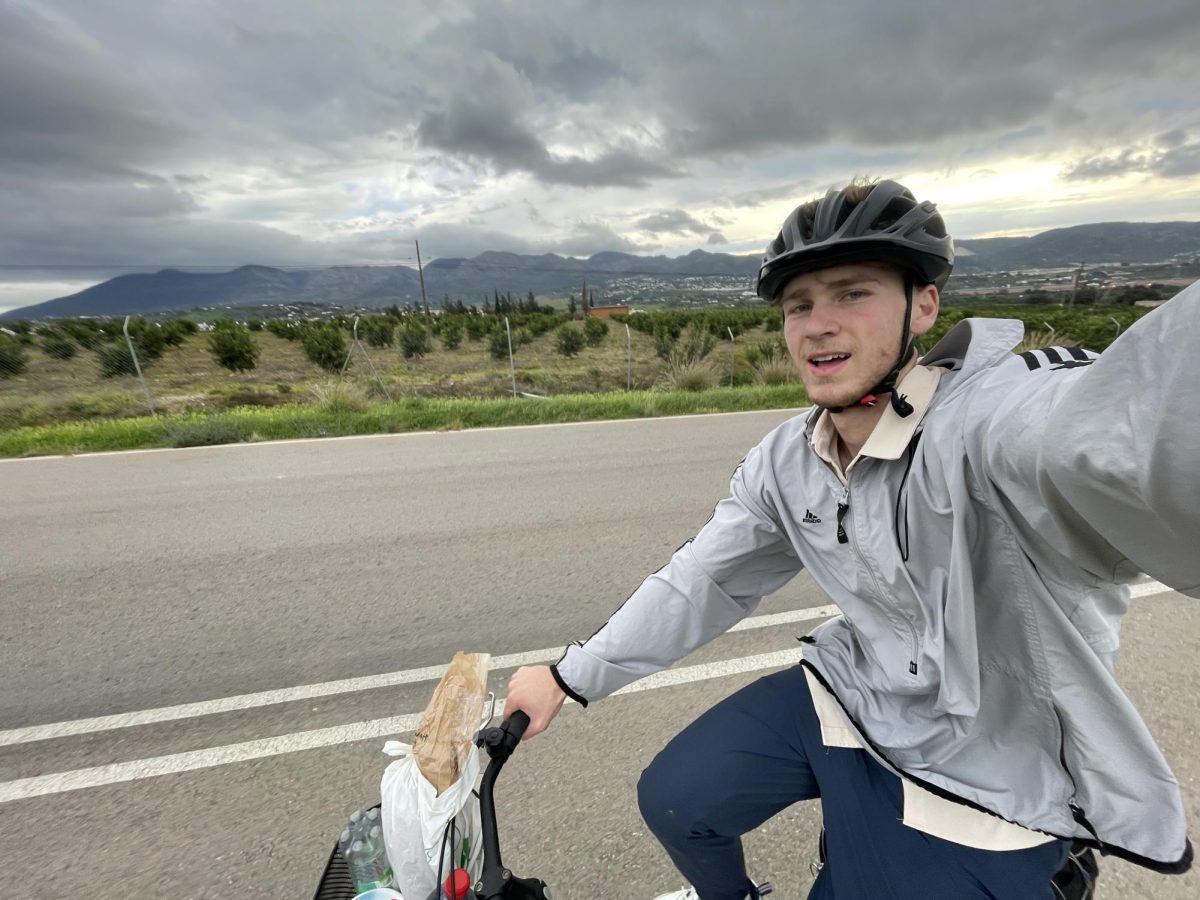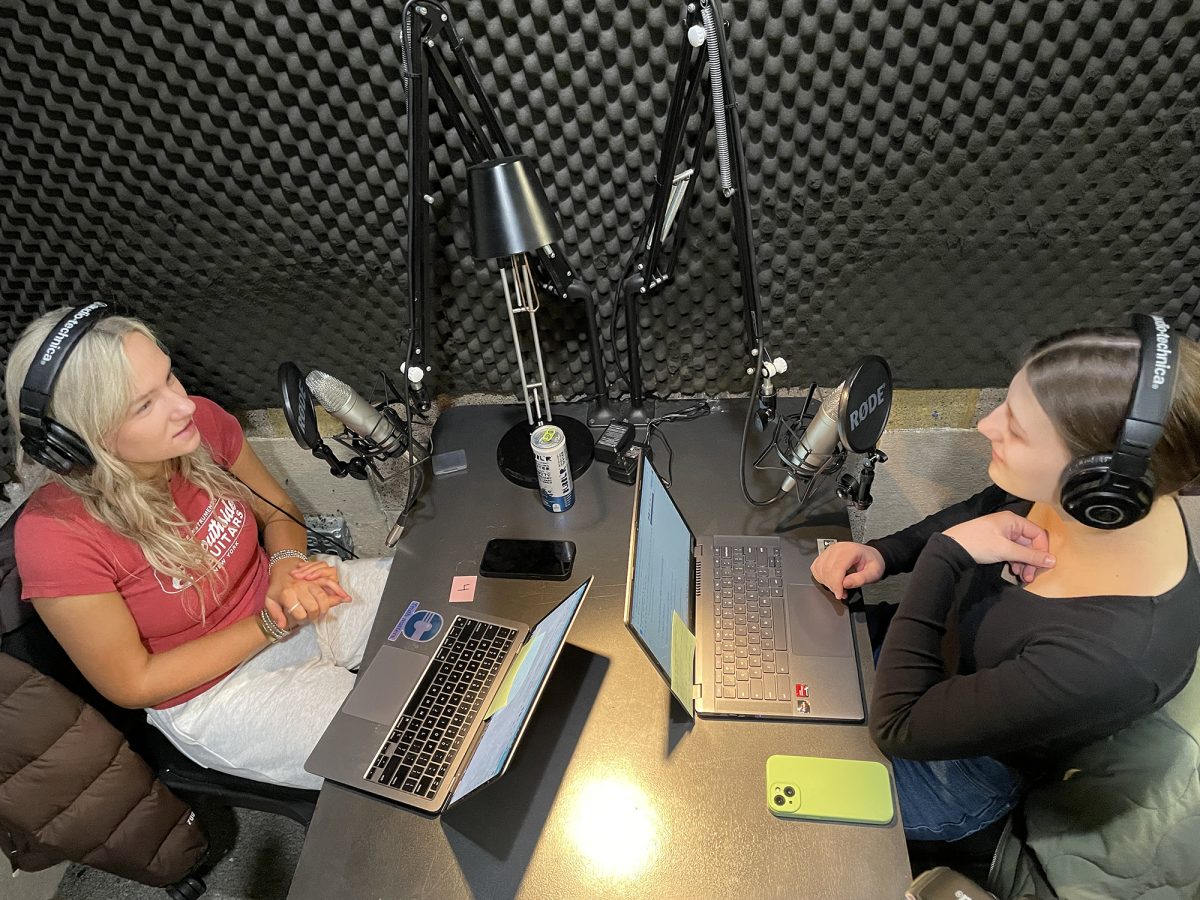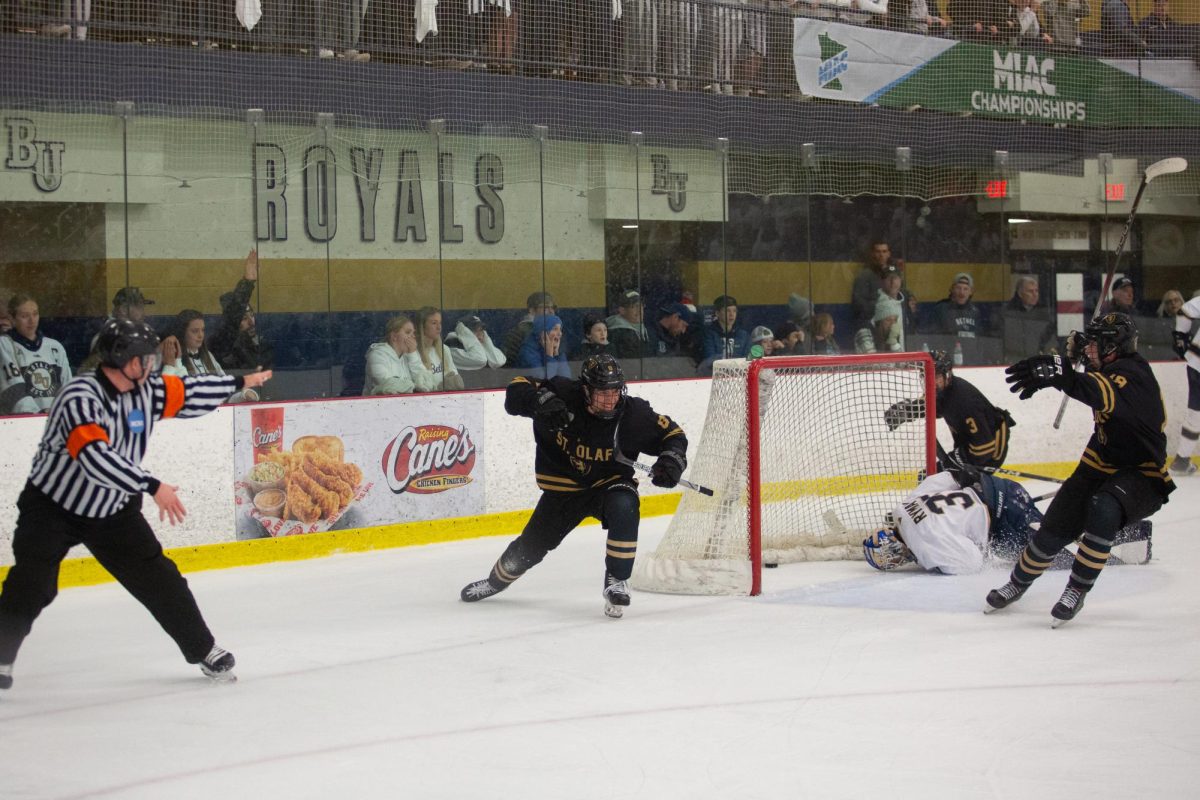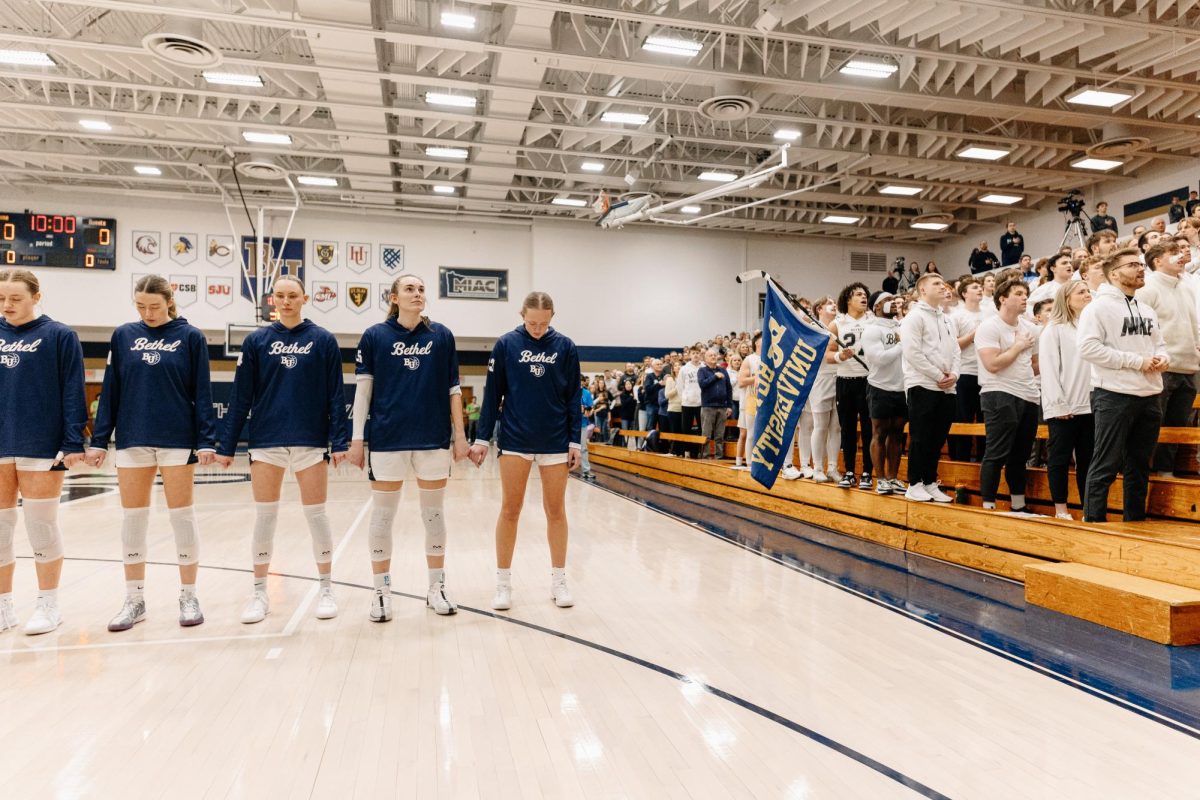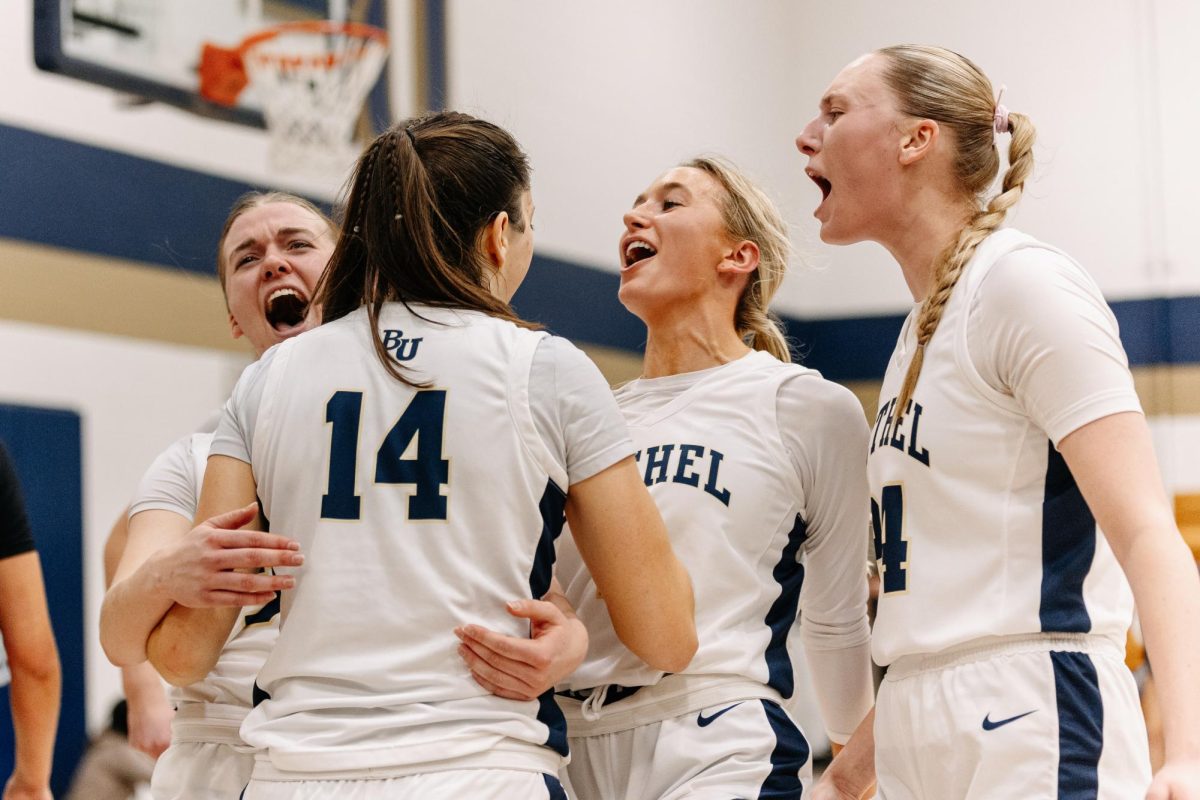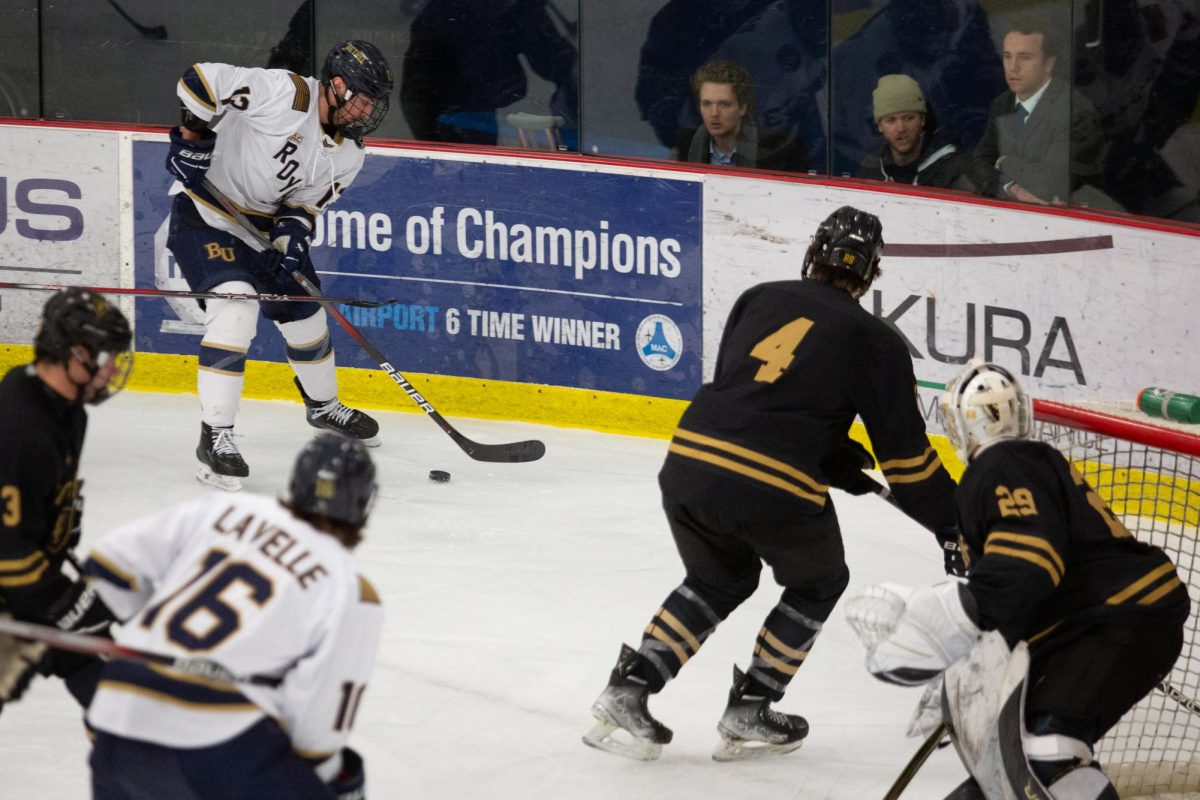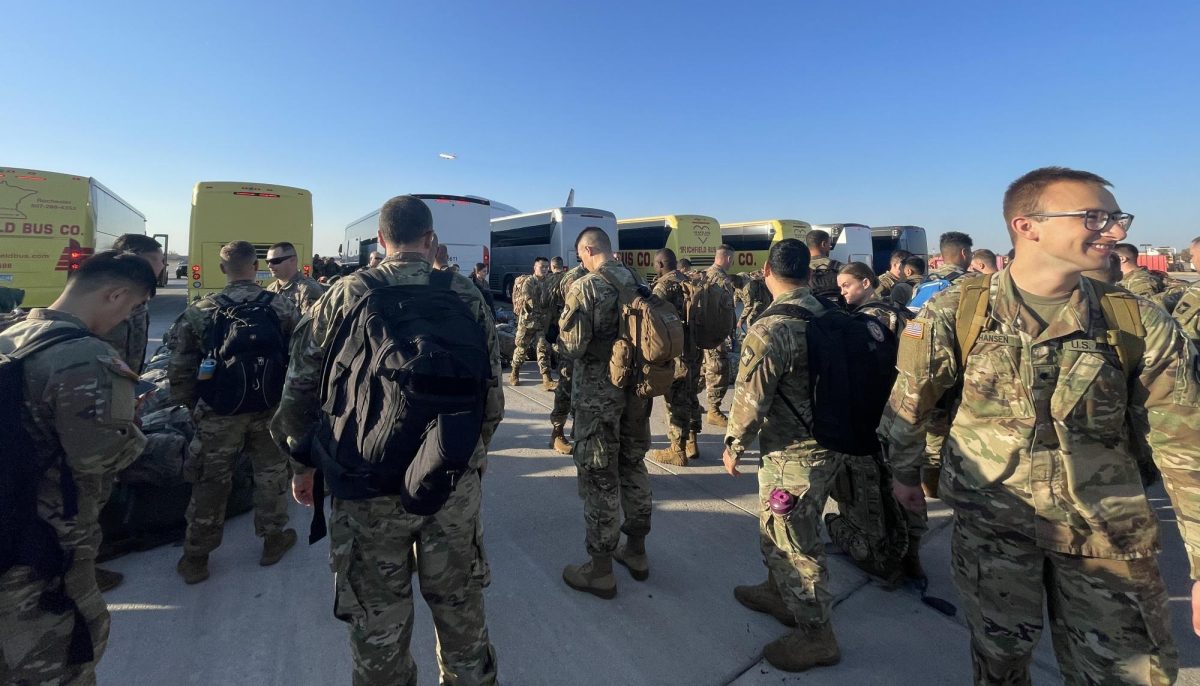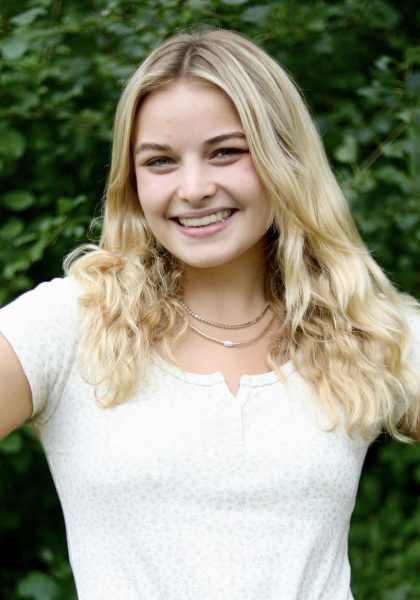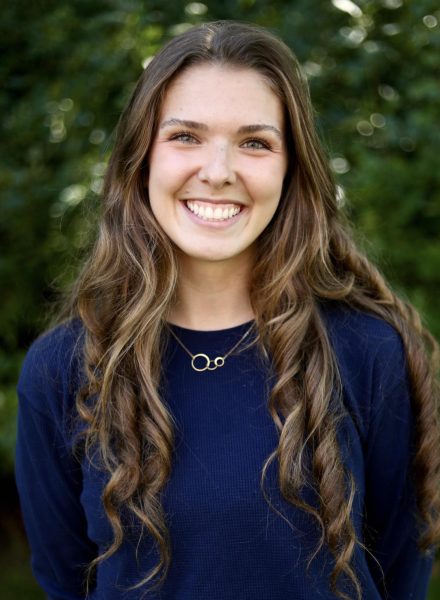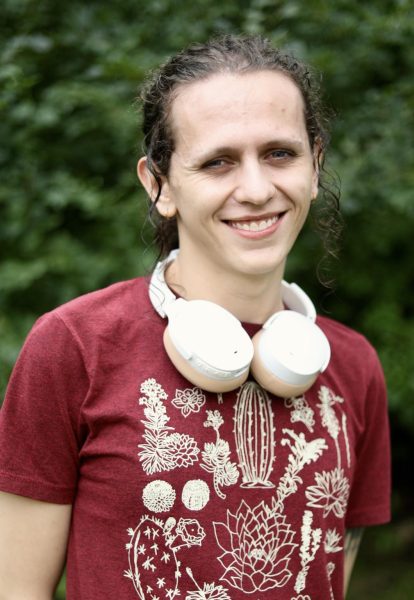Chasing a monkey
David Erickson biked through the pitch black backroads of southern Spain at 8 p.m., phone flashlight wobbling as he narrowly avoided oncoming traffic. After 85 miles, Erickson decided to turn in for the night. Stopping at the nearest hostel, he knocked on the door until a guest finally let him in. He still had miles to go in the morning, but sleep was all he could think about. Erikson’s ultimate goal? To see the only monkeys in all of Europe in Gibraltar, an achievement that required him to bike alone for a total of 100 miles.
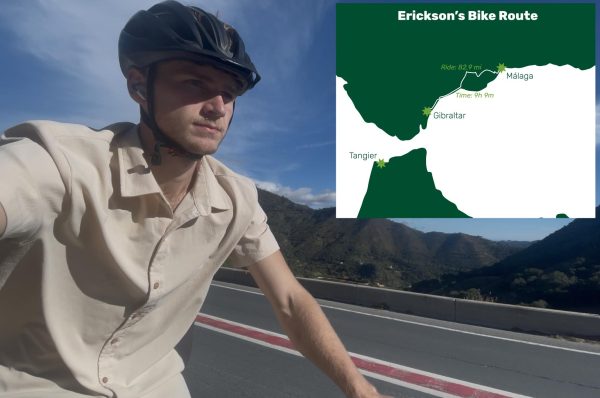
During J-term, Bethel University students spent a month in new countries around the world. They learned about new cultures
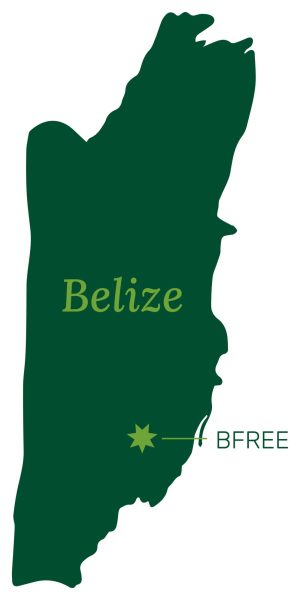
while experiencing self-discovery. For Erickson, biking across borders over the course of two days was a physically-draining journey that included sore muscles, unfamiliar roads and conquered fears. For Bethel students Abby Chalmers and Amy Holmberg, the challenge of experiencing a new culture in Belize while carrying the same troubles from the U.S. with them was an emotionally-taxing experience of processing that couldn’t be tuned out by social media or comfort TV shows.
“In Belize, instead of turning on your phone, you turn to your notebook,” Holmberg said. “It was the only coping mechanism available to you.”
The river
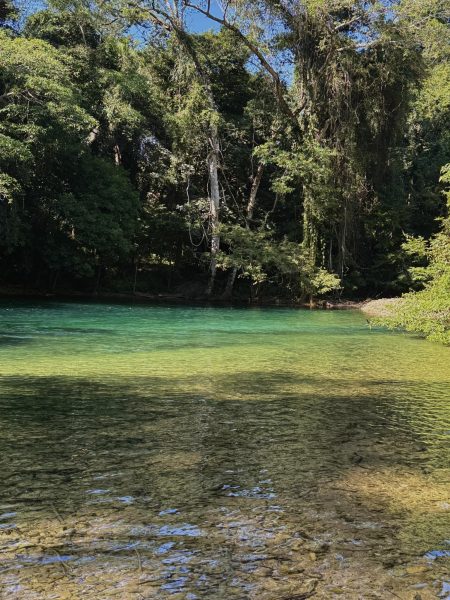
(Abby Chalmers)
While Erickson embarked on his 100-mile monkey journey, halfway across the world in Belize, Chalmers swam upstream along the Bladen River outside of her two-week home at the Belize Foundation for Research and Environmental Education (BFREE). She, along with five other girls on the trip, was staying in a a large treehouse-style structure adorned with hammocks along support posts, affectionately called “The Hammock,” in the middle of the Bladen Nature Reserve near the Maya Mountains.
The Bladen River became her sanctuary for the next two weeks of her life. Perching on a rock with the sun on her shoulders and water flowing around her offered mental clarity among the deeply-emotional writing the journalism students were practicing during their time in Belize.
“If things were bad, going to the river fixed it,” Chalmers said. “It was this magical feature of the land that made the trip enjoyable.”
The itsy bitsy spider
When Chalmers entered her room within The Hammock after a six-mile hike into the reserve, she crashed in her bed, exhausted. Suddenly, her roommate, Amy Holmberg, discovered a sack of spider eggs on the curtains. Chalmers sprang from atop her duvet as Holmberg spotted a spider the size of a “Chips Ahoy” cookie on the back of the door. Chalmers realized that the door was now crawling with four different spider species. Armed with shoes and paper towels, Chalmers and Holmberg ran out the door and towards the safety of their friends’ neighboring room, where they stayed for the remainder of the trip.
After Gibraltar, Erickson headed to Tangier, Morocco. The only question was what to do with his bike. He paced around the station, waiting for the bus that was arriving in 15 minutes. Erickson tried to sell the bike, attempting to get the attention of strangers at the bus station as they passed by, hoping to get $10 for it instead of leaving it at the station. Erickson felt awkward in the situation.
“Selling a bike quickly is the sketchiest thing of all time,” Erickson said.
Finally a man at the station told Erickson he would pay $40 for the bike. He told him his house was just down the road, and if he could use the bike to get his wallet he could be back in time before the bus left. Erickson handed over the bike with no other option. He ended up boarding the bus empty handed—no bike, no money, but he had a camera roll full of photos with a monkey.
